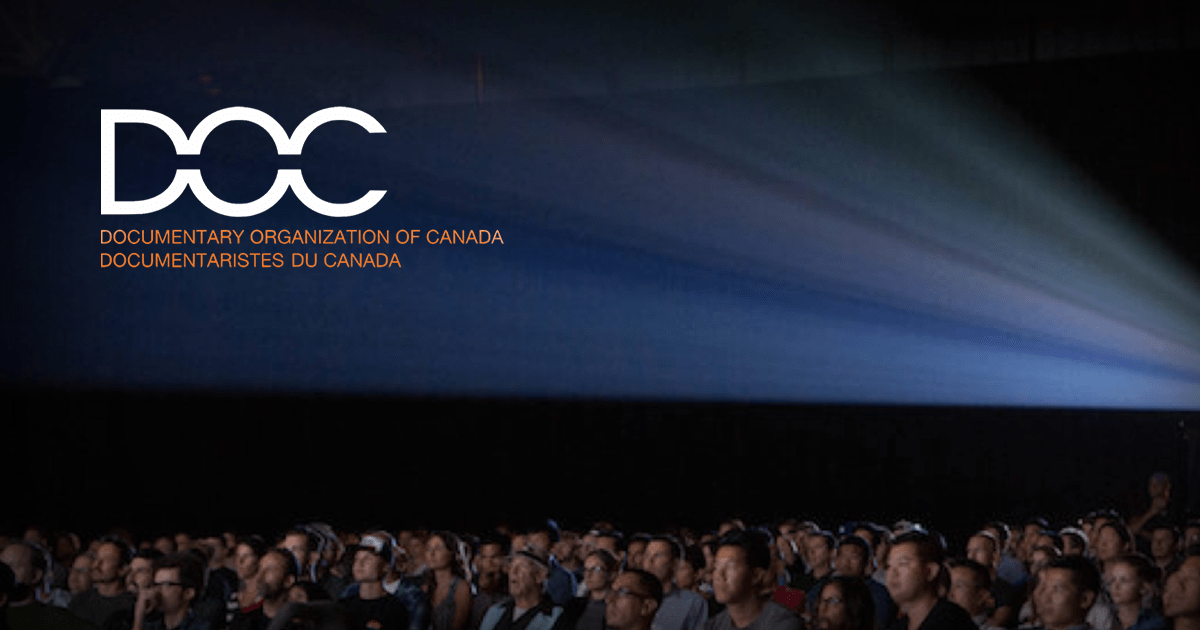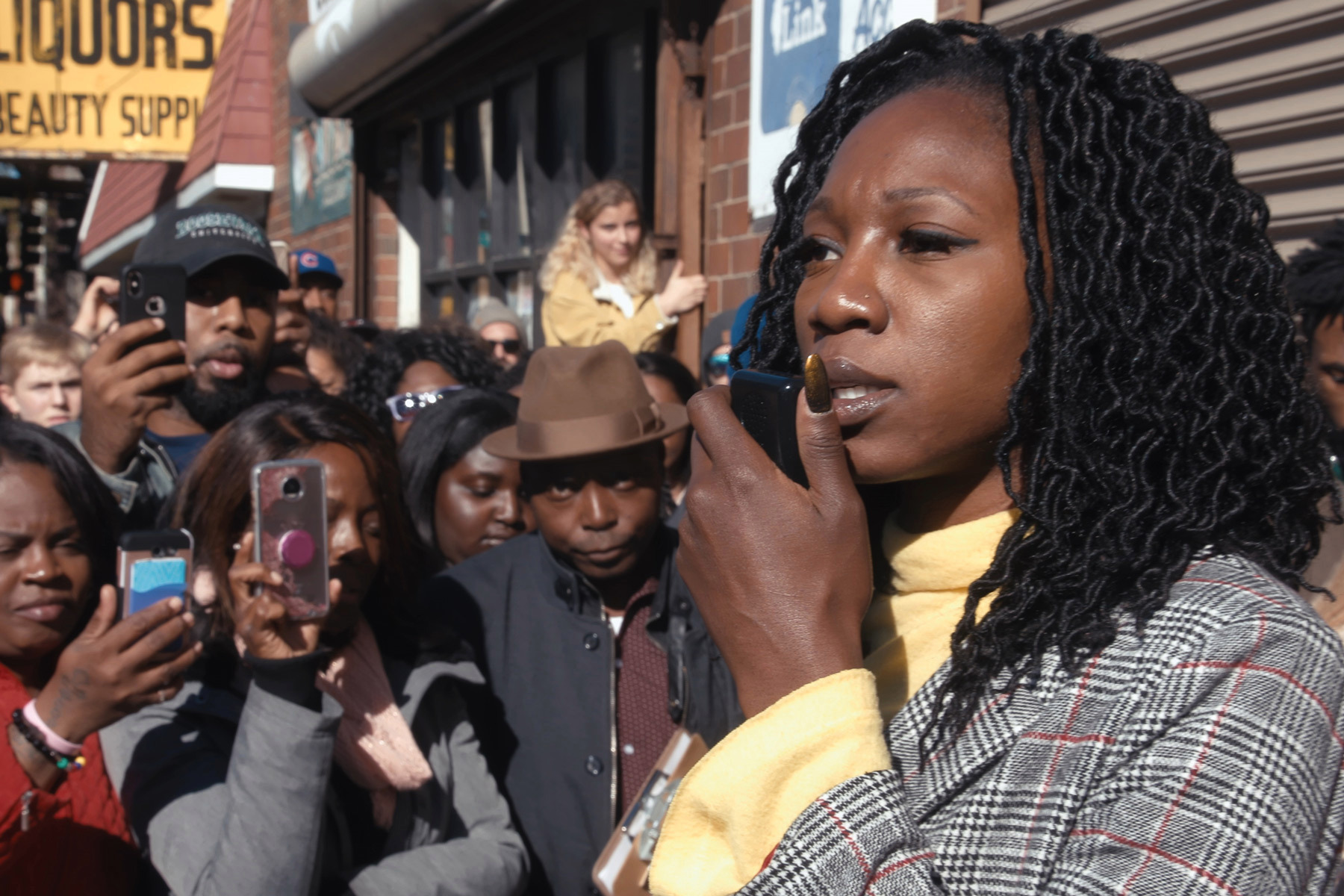Canada’s documentary filmmakers are experiencing serious blows to their work as a result of the COVID-19 pandemic. A new survey released today and conducted by the Documentary Organization of Canada (DOC) reveals the effects of COVID on productions nationwide. The survey indicates a wide range of financial losses, production postponements, and elements of uncertainty for projects both current and future. The effects of COVID-19 are evident throughout all stages of the production line from development to release strategies. The survey quantifies many of the concerns in the industry-wide town halls DOC has held with filmmakers, funders, broadcasters, and stakeholders throughout the pandemic.
The survey draws from 172 respondents working in both English and French and representing eight of Canada’s ten provinces. The majority of respondents indicate that their projects are on hiatus with 49% of filmmakers saying their productions are postponed until an unknown date. Only 6% of respondents say that their projects are moving forward as planned, while only 1% of filmmakers indicate that their docs have been outright cancelled. In between the extremes, 12% of respondents say that their projects are moving forward with some adjustments while 19% report postponements in some steps. These results reflect the respondents’ primary documentary projects as producers and/or directors. The majority of these projects are or were in the development stage and represent a range of formats, the majority of which are theatrical documentaries.
Financial Impact
The financial impacts of COVID-related postponements, however, are less clear. The majority (51%) of filmmakers say it’s too early to estimate the financial toll on projects, while 30% of respondents indicate that they are not financially effected. 10% of responding filmmakers say they can estimate how much financial losses they will feel, while only 9% can currently quantify the amount. While the majority of respondents say it’s too early to put a price tag on COVID-19’s impact, the projected losses from respondents who could provide figures range from $6000 to $1.4 million. These financial consequences are significant as the majority of respondents (75%) indicate that they earn at least half their income from their documentary work.
COVID-related effects appear more frequently for filmmakers with multiple projects in the works. In terms of postponements, producers or directors report an increase for their second projects with 61% saying that docs are delayed. Numbers are also higher for the financial consequences of COVID-19 on secondary projects with 66% of respondents saying their docs are effected but can’t yet quantify or estimate the damage. The number of filmmakers reporting no financial damage drops significantly with only 7% reporting no financial impact on secondary projects, down 23 points compared to primary works. The majority of responding producers and directors again say it’s too early to estimate or calculate the financial impact, but those who do place losses between $2,500 to $599,000 for secondary projects.
Effect of COVID on Freelance Work
Freelance workers, which include but are not limited to, cinematographers, editors, researchers, and composers, report significant losses as well. Freelance respondents indicate a range of contracts postponed between the early days of production freezes in March through mid-June, while other respondents forecast postponements for work contracted for late June through September. Roughly one-third of the freelancers report that their contracts for the March 15 to June 15 period were cancelled.
More significantly, these reports acknowledge only signed contracts. They do not calculate contracts that were in the negotiation stages and were postponed or cancelled, which further indicate the elements of uncertainty and financial hardship that filmmakers face as COVID-19 a situation that was precarious to begin with. “As Covid has exposed the harsh, and unfair nature of our society in other sectors,” wrote one respondent, “so too has it in our industry. So many of us are constantly underpaid for our work—left in a state of constant hustle that is unsustainable.”
Festivals and Networking Losses
Many of the consequences of COVID-19 closures on documentary production are more difficult to quantify. As live productions freeze, filmmakers must reconsider their strategies and creative choices since in-person interviews remain a challenge, inviting risks and well as concerns for insurance financing. Travel restrictions might alter access to stories and subjects, or prove cost-prohibitive, while other filmmakers express concerns that the severity of the COVID-19 pandemic means that their stories are no longer relevant to audiences.
There are also concerns about bottlenecking for access to talent and crews when production resumes, as well as when festivals and distributors can offer viable platforms for content. Filmmakers also express concerns that the impacts of COVID on such platforms mean that festivals will favour established talent and put emerging or under-represented voices at a further disadvantage. Doc makers feel the emotional toll of COVID across the board, which further complicates production in circumstances that are not ideal.
Similarly, the cessation of film festivals as live events and their shift to online geo-blocked streaming services raises barriers in terms of audience reach and financing opportunities. While the industry has made efforts to adapt markets to virtual settings, members of the documentary community report that the loss of in-person networking is significant. Filmmakers also face challenges raising the profiles of their films for sales, distribution, and audience reach with the theatrical/festival model disrupted—and equally uncertain as precautions for re-opening theatres make a return to normal for audience engagement and box-office revenue unlikely for the foreseeable future.
Looking forward.
DOC’s report indicates two key efforts that filmmakers believe could help improve the situation. Filmmakers want to see ongoing dialogue, transparency, and understanding from funders, and an action plan to help filmmakers return to work while ensuring the safety of crews and subjects. In particular, many filmmakers identity access to development funds as a crucial lifeline. Some filmmakers see the reach of the coronavirus pandemic as a potential to reconsider models in need of review. Several respondents in the survey suggest that the opportunities presented by COVID situation might encourage a period of reflection on the value of virtual screenings/distribution and a reconsideration of funding models.
“We can now see the power imbalance and inequality in this industry in stark relief,” wrote one respondent. “We need to take systemic measures to right the situation.”
Read the DOC report here.












